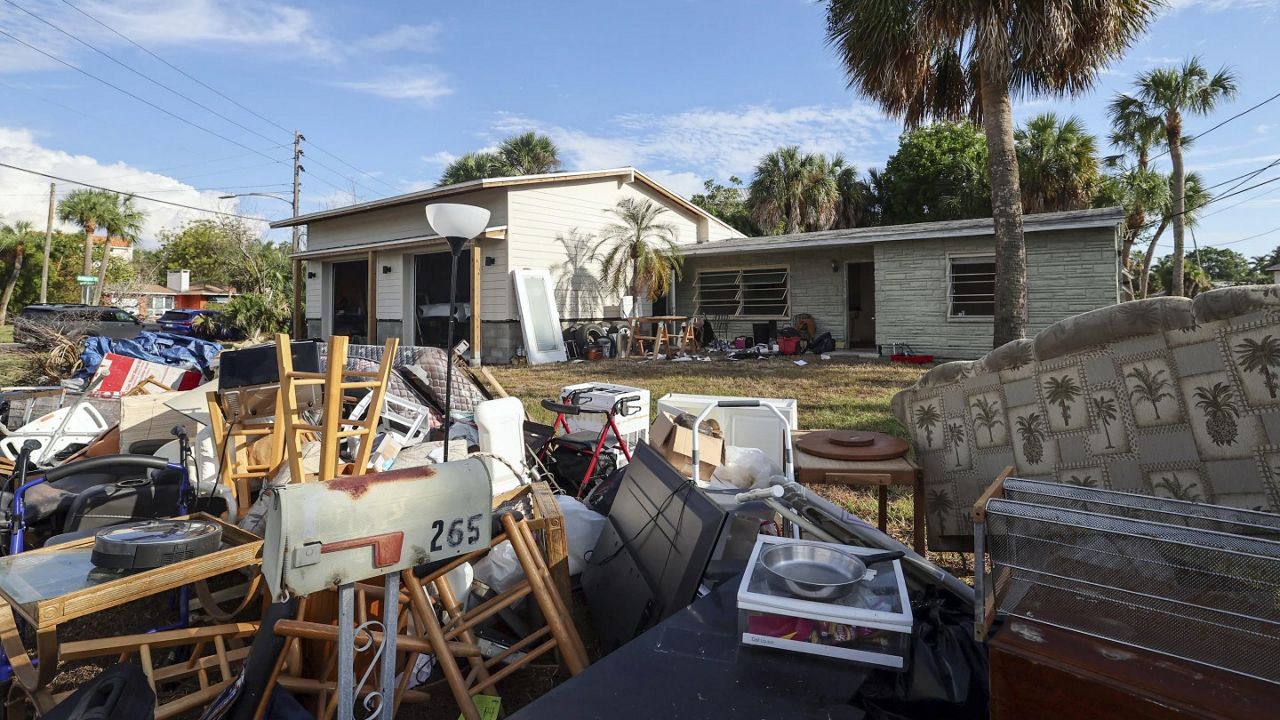WASHINGTON — The Federal Emergency Management Agency can meet immediate needs but does not have enough funding to make it through the hurricane season, Homeland Security Secretary Alejandro Mayorkas told reporters Wednesday.
What You Need To Know
- FEMA can meet immediate needs, but not long term needs, Homeland Security Secretary Alejandro Mayorkas said Wednesday
- Mayorkas said the agency does not have enough funding to make it through the hurricane season, but did not say how much additional money FEMA may need
- Congress recently replenished a key source of FEMA’s response efforts, providing $20 billion for the agency’s disaster relief fund as part of a short-term government spending bill to fund the government through Dec. 20
- More than 150,000 households have registered for assistance with FEMA. That number is expected to surge in the coming days, an official said
The agency is being stretched as it works with states to assess damage from Hurricane Helene and delivers meals, water, generators and other critical supplies. The storm struck Florida last week, then plowed through several states in the Southeast, flooding towns and killing more than 160 people.
Mayorkas was not specific about how much additional money the agency may need, but his remarks on Air Force One underscored concerns voiced by President Joe Biden and some lawmakers earlier this week that Congress may need to pass a supplemental spending bill this fall to help states with recovery efforts.
“We are meeting the immediate needs with the money that we have. We are expecting another hurricane hitting,” Mayorkas said. “FEMA does not have the funds to make it through the season.”
Hurricane season runs June 1 to Nov. 30, but most hurricanes typically occur in September and October.
Congress recently replenished a key source of FEMA’s response efforts, providing $20 billion for the agency’s disaster relief fund as part of a short-term government spending bill to fund the government through Dec. 20. The bill also gave FEMA flexibility to draw on the money more quickly as needed.
Both chambers of Congress are scheduled, however, to be in their home states and districts until after the election, as lawmakers focus on campaigning.
House Speaker Mike Johnson, R-La., gave no hint he was considering changing that schedule during a speech Tuesday. He said that Congress just provided FEMA with the funds it needs to respond and that lawmakers would make sure those resources are appropriately allocated.
A bipartisan group of senators from affected states wrote their leadership this week, saying it’s clear Congress must act to meet constituents’ needs. They said that may even require Congress to come back in October, ahead of the election.
Mayorkas made his comments as Biden and Vice President Kamala Harris fanned out across the Southeast to witness the damage from the hurricane and seek to demonstrate commitment and competence in helping devastated communities. Biden headed to North and South Carolina, while Harris went to Georgia and plans to go to North Carolina on Saturday.
More than 150,000 households have registered for assistance with FEMA, and that number is expected to rise rapidly in the coming days, said Frank Matranga, an agency representative.
The devastation was especially severe in the Blue Ridge Mountains, where at least 72 people died in and around Asheville, N.C., a tourism haven known for its art galleries, breweries and outdoor activities.
“Communities were wiped off the map,” North Carolina Gov. Roy Cooper said at a news conference Tuesday.




